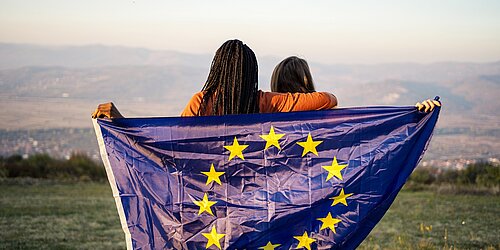Copyright: Shutterstock/Artur Wnorowski
Project background
Every year, several million tons of chemicals are released into the environment – with serious effects on human health and the environment (see also Global Chemicals Outlook of the United Nations). According to the Federal Environment Agency of Germany, global chemical sales will almost double again in the period up to 2030, as in 2000-2017. The challenges continue to increase. Therefore, global sustainable chemicals management is necessary, also to achieve the Sustainable Development Goals (SDGs) and thus contribute to the implementation of the 2030 Agenda. An important role is played by the development of international agreements and their implementation, such as the Strategic Approach to International Chemicals Management (SAICM), which was adopted in 2006 under the auspices of the United Nations. As SAICM was tied to the 2020 target, there is an urgent need for a new, strong framework for the transition to sustainable global chemicals and waste management. This successor framework is to be adopted by the Fifth International Conference on Chemical Management (ICCM5) in 2023.
The adoption of an ambitious international framework requires a corresponding commitment from a large number of participating states. The project aims to engage countries in Southern, South-Eastern Europe and Central and Eastern Europe for progressive measures within the framework of the SAICM through a strengthened and well-coordinated European environmental movement of NGOs. Accordingly, NGOs will build capacity to participate in EU processes relevant to the successor framework to SAICM and its implementation. The aim is to increase the number of targeted NGO interventions on the sustainable management of chemicals and waste at regional, national and global levels in order to raise awareness among decision-makers in this regard.
Project goals and measures
The overall objective of this project is to better protect people and the environment from the risks posed by hazardous chemicals. This is to be achieved through an ambitious agenda for a non-toxic environment through SAICM and the fulfilment of the requirements of the SDGs. To this end, it is important to increase the number of EU member states and neighbouring countries that support the goal of a non-toxic environment and are committed to an ambitious SAICM agenda. To this end, the project aims at three outcomes: building resources and capacities and raising awareness among NGOs, building an NGO network, and informing national decision-makers and stakeholders about the positions of the NGO network relevant to the SAICM process and beyond. The project partners intend to establish an NGO network with NGOs from Greece, Serbia, North Macedonia, Portugal and Ukraine in order to strengthen the commitment of the states of these regions in international and EU chemicals policy.
